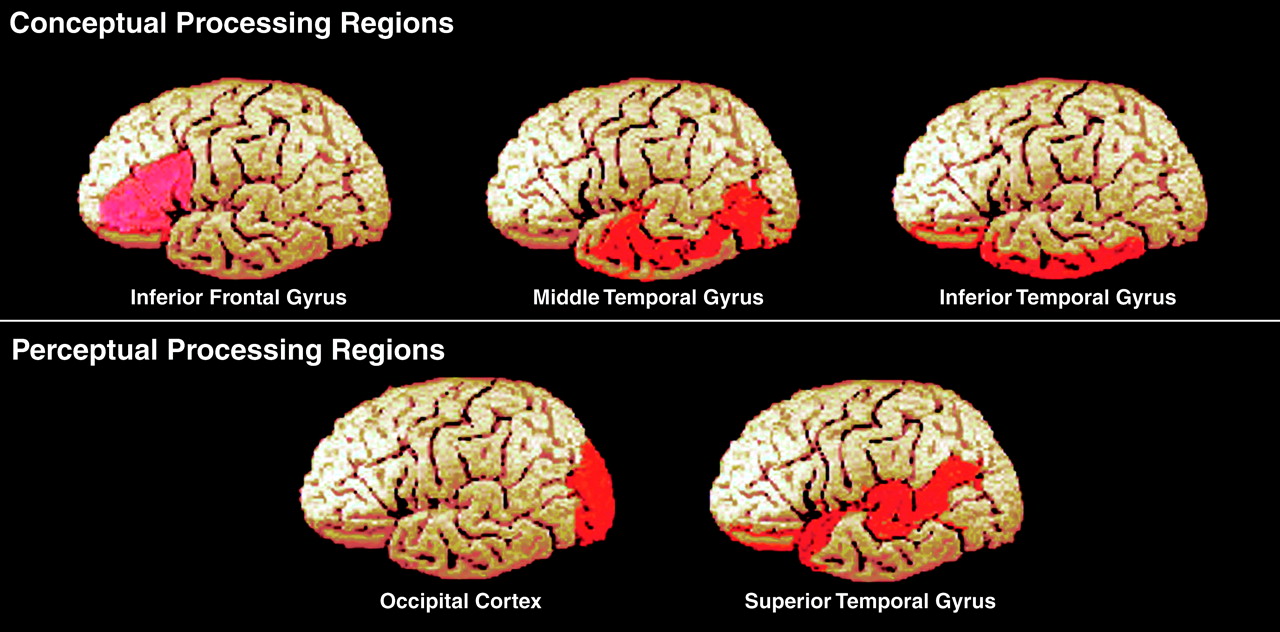Studies of human memory show that performance can be uncorrelated, or dissociated, across various types of memory tests. Such dissociations are observed both in patients with brain lesions and in normal volunteers. In some cases, dissociations among memory tests are thought to reflect differences in the types of processing engaged during learning (encoding) and during memory testing (retrieval). Some memory tests emphasize conceptual processing, or the analysis of semantic meaning of to-be-remembered information, whereas other tests are more perceptually driven, requiring analysis of physical features of stimuli instead of semantic content. For example, a conceptual test of semantic cued recall might provide a word such as “terrorist” as a retrieval cue for the studied word “assassin.” A perceptual test of word fragment completion, on the other hand, might provide the test cue “A _ _ A _ _ I N” for retrieval of the same word. Memory performance is best when the type of processing (conceptual or perceptual) performed during learning matches the type of processing performed on the memory test (conceptual or perceptual). When there is a mismatch between the types of processing engaged during learning and at test, performance will suffer. Thus, memory for the same studied material might appear to be good when tested with one type of test but would appear to be poor when tested by another memory task with different processing requirements.
There are now several converging lines of evidence from both disruption and activation studies suggesting that conceptual and perceptual memory processes are subserved by different parts of the brain. Conceptual and perceptual memory processes have been mapped by studying patients with brain lesions by means of behavioral measures, rapid transcranial magnetic stimulation (rTMS), and electrical cortical stimulation. Studies with normal volunteers have employed behavioral tests and functional mapping techniques, such as positron emission tomography (PET) and functional magnetic resonance imaging (fMRI). As shown in the top row of the figure, regions in the left inferior frontal gyrus, left middle gyrus, and left inferior temporal gyrus are involved in conceptual memory processes. On the other hand, perceptual memory processes appear to be mediated by the sensory regions involved in the initial perception of stimuli, both at encoding and during retrieval. As indicated in the second row of the figure, these regions include the occipital cortex for visual stimuli and the superior temporal gyrus for auditory stimuli. Thus, brain lesions or regional degenerative processes can be associated with one or the other type of memory loss, depending on the localization of the lesion.


